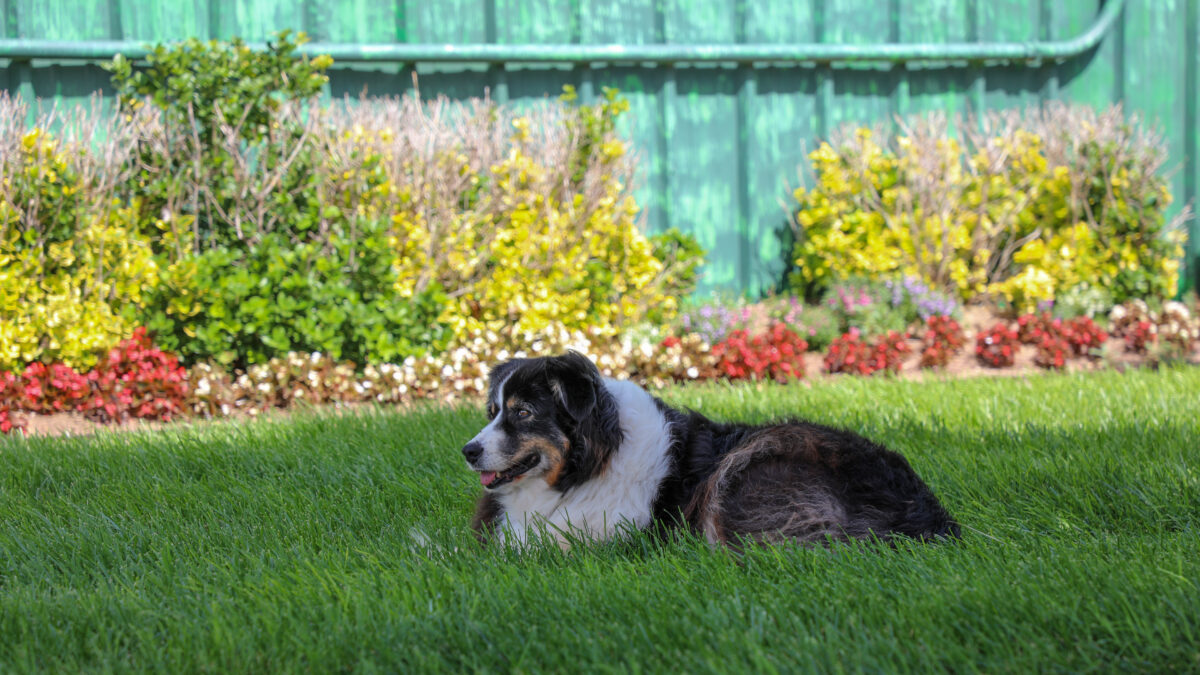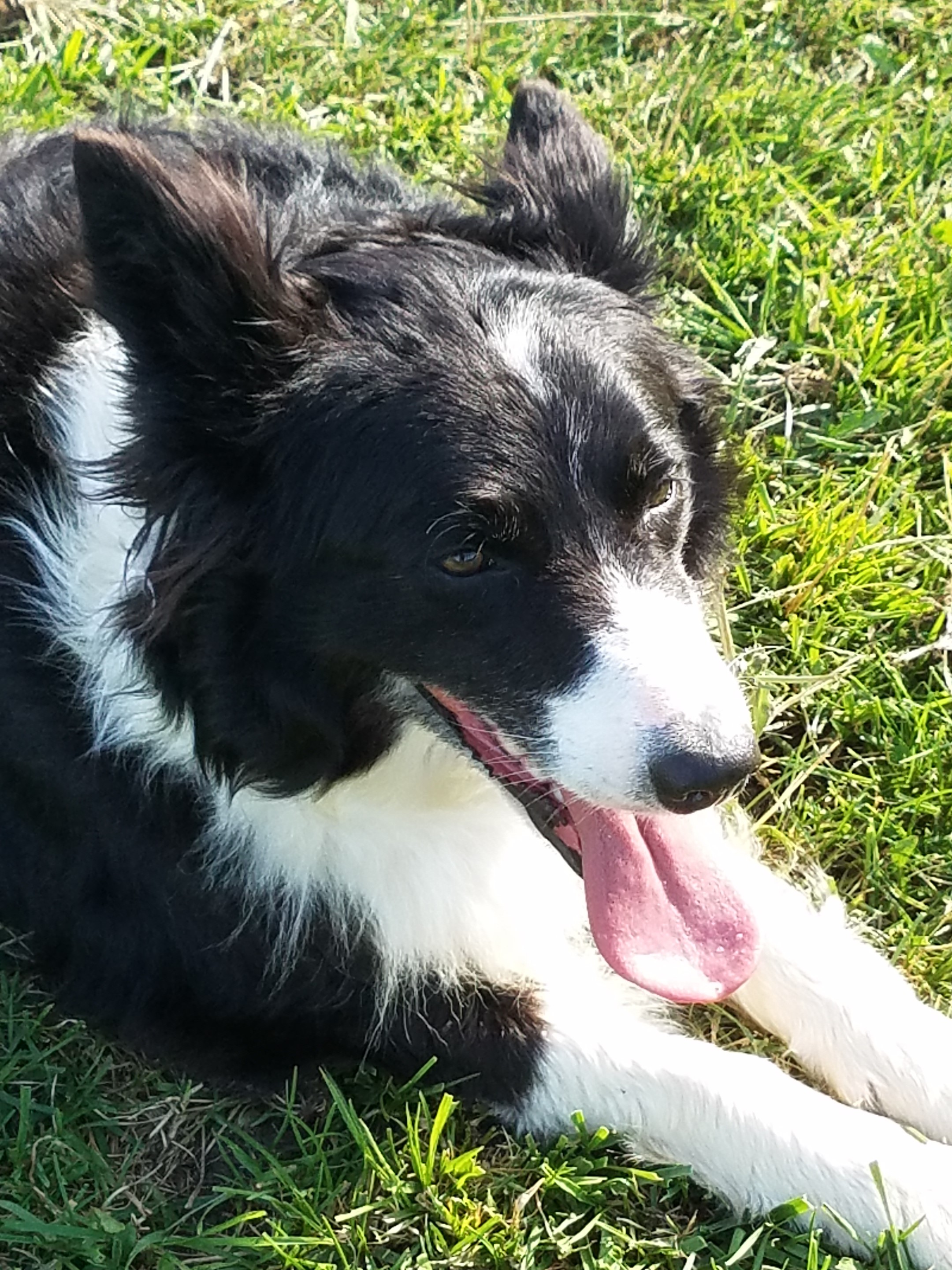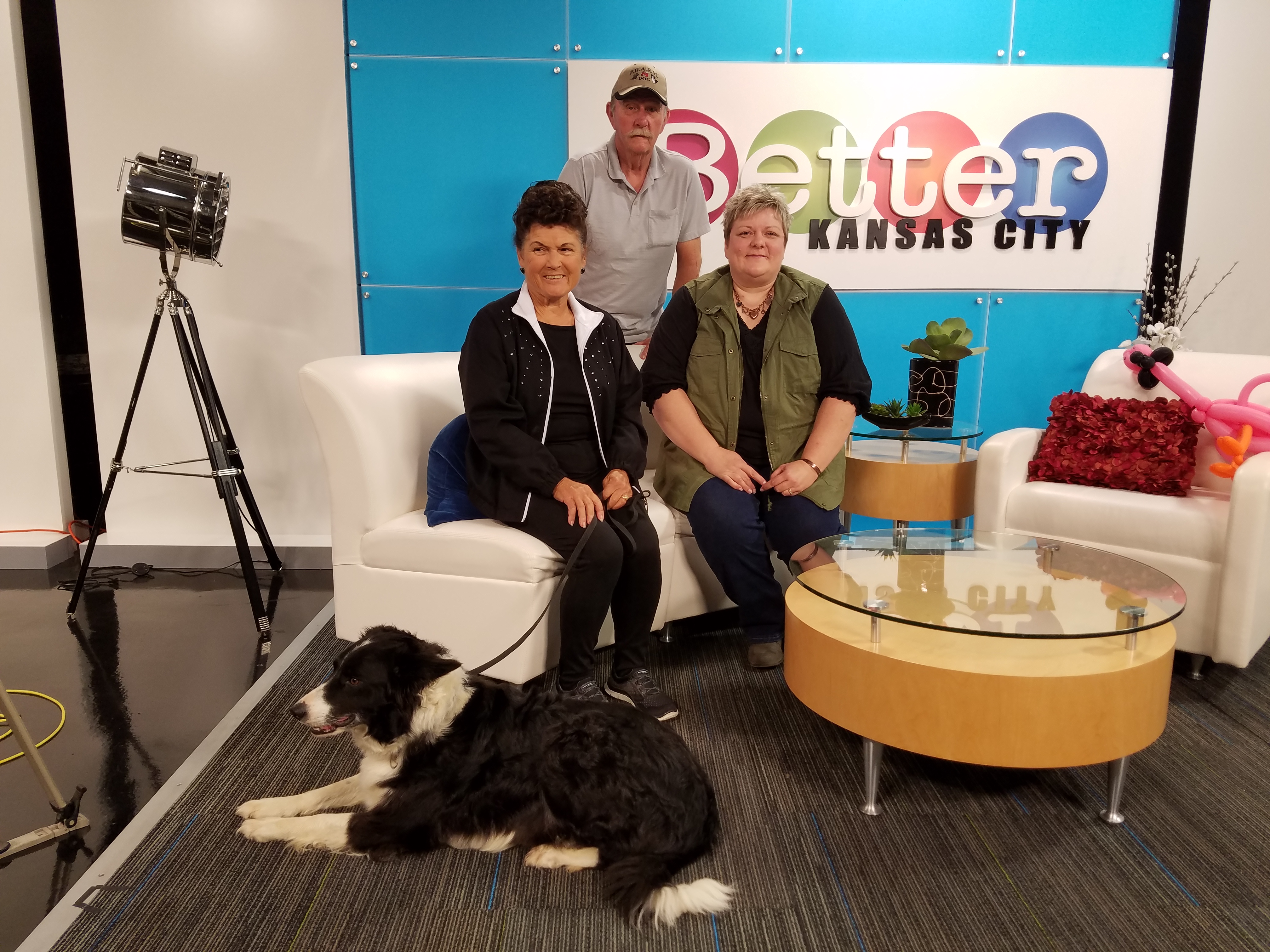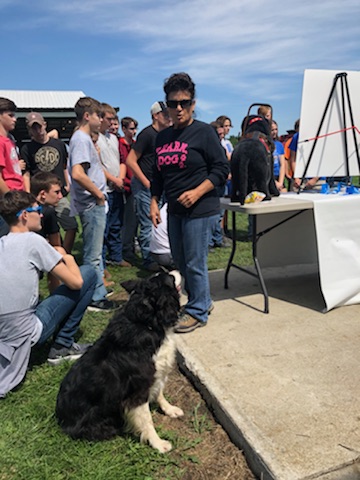A Four-Legged Farmhand
TOPICS
Farm Dog of the YearErin Anthony
Director, Communications

photo credit: Right Eye Digital, Used with Permission
Erin Anthony
Director, Communications
By Bailey Corwine
Alda Owen was 60 years old when she owned her first puppy, a Border Collie she named Sweet Baby Jo. The two bonded immediately, enjoying rounds of fetch in the pasture and going for rides in a utility vehicle. But Sweet Baby Jo isn’t just any farm dog and Owen isn’t just any farmer.

Owen has been legally blind since the age of 10. At 58 she battled breast cancer and depression, along with frustration from a lessened ability to help her husband, Rick, around the farm due to decreased physical strength. Two years later, she was introduced to Jackie Allenbrand, owner of the non-profit organization Pets Helping Agriculture in Rural Missouri (PHARM) Dog. Allenbrand helped change Owen’s life by connecting her with a dog specifically trained to assist with tasks on a cow-calf operation.
Owen said Sweet Baby Jo mostly helps her with the feeder calves they run between a dry lot and a small pasture near their home in northern Missouri, but she also provides another essential service: unconditional love.
“I can’t find any words to explain how wonderful she is,” Owen said. “She’s my helper, she’s my eyes, she’s my strength, she’s my motivation.”
Owen, who is a Farm Bureau member in Missouri, said she has “no visual depth perception,” which can make running feeder calves difficult. Just before she met Allenbrand, she was injured by a bull while trying to shut a gate.
“I thought I had the gate close enough to shut before I got there,” Owen said.
After Allenbrand and Owen’s initial conversation, PHARM Dog paired her with Sweet Baby Jo, who was then just a puppy. Traditionally, PHARM Dog pairs farmers with dogs who are fully grown and trained, but Allenbrand knew Owen’s situation was different.
“Alda was an exception, but it worked out well because we live close and could work with her directly,” Allenbrand said. “We wanted to see if it would be better to have a puppy bond with a farmer in the beginning, but we normally place adult dogs.”
With occasional guidance from Allenbrand and a herding dog trainer PHARM Dog regularly partners with, Owen began working with Sweet Baby Jo right away. She said the dog caught on to her helper role quickly.
“It wasn’t long before she was riding in the back of the Kubota with Rick or me and her interest was piqued,” Owen said. “We could tell she wanted to see the cattle and be around the feeder calves.”

Sweet Baby Jo is now 6 years old and the ideal “four-legged farmhand,” according to Owen. In addition to helping Owen rotate feeder calves from the dry lot to the pasture and holding groups of cattle back from Owen while she goes about her daily routine, Sweet Baby Jo also tracks down lost calves if they become separated from their mothers.
“If we can’t find a calf, she’ll find it and come back to me,” Owen said. “I don’t know how to explain the look that she gives me, but she usually lets Rick and I know [she’s found the calf].”

When they’re not moving cattle or tracking down calves, Owen uses her time to promote dogs as assistive technology and the positive work PHARM Dog is doing in the agricultural community.
“Sweet Baby Jo and I have gone to preschools, elementary schools, libraries and assistive technology [conferences] promoting this new way to use technology,” Owen said. She also nominated Sweet Baby Jo for the American Farm Bureau’s Farm Dog of the Year contest to help increase awareness about agricultural service animals.
Owen said Allenbrand played a big part in helping her “open up” to become an advocate for farmers with disabilities.
“Jackie helped me find the resources,” Owen said. “The first thing I did was speak on a local farmers panel for disabled farmers.”
At the panel, Owen and several other farmers spoke about how their disabilities affected their life on the farm, but that their assistive dogs allowed them to get back to work. She said PHARM Dog has a two-fold purpose.
“You save a dog and you save a farmer’s integrity,” Owen said. “You make him or her productive again.”
Since PHARM Dog’s inception in 2012, the program has placed 17 dogs, primarily in the Midwest region. Dogs placed with farmers are trained for general assistance (carrying buckets, opening gates, etc.) or to herd livestock. The organization is funded entirely by small grants and private donations, which can be a challenge due to the high demand for service dogs that are comfortable and competent in a farm setting.
“I wish some funding would come to the PHARM Dog program,” Owen said. “[Allenbrand] wants to help so many more.”
Currently, PHARM Dog is working to raise funds to build a training facility so that the program can expand and other farmers can experience the joy of a four-legged farmhand, just like Owen has.
Bailey Corwine is an intern in the American Farm Bureau Federation’s Communications Department. She will graduate from the University of Arkansas in December with a degree in agricultural communications.
Trending Topics
VIEW ALL